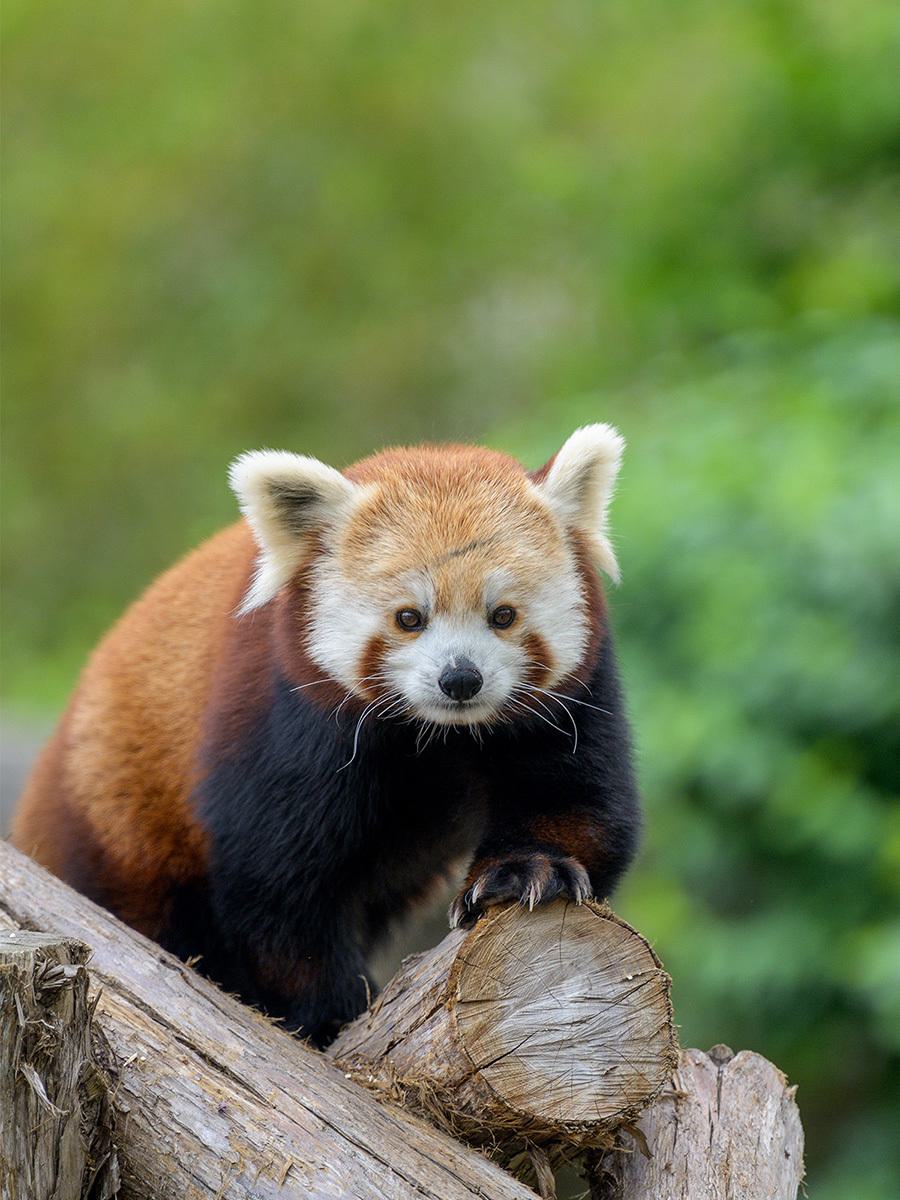
Red Panda
Ailurus fulgens fulgens
Did you know?
- The red panda belongs to its own family group, the Ailuridae. They are most closely related to raccoons.
- Red pandas love bamboo – it’s up to 90% of their diet.
- The extra “thumb” on a red panda’s front paws is a modified wrist bone that allows the animal to easily grasp bamboo.
- Dense fur completely covers their feet, which have five, widely separated toes and semi-retractable claws.
- Red pandas scent-mark territories using anal glands and urine, as well as scent glands located between their footpads.
Mountain Dweller
Red pandas make their home in mountain forests and bamboo thickets. They are active mainly at night and spend their days sleeping in trees, out of the reach of most predators.
Young and Family
Red pandas are primarily solitary creatures, except during breeding season. An expectant mother will create a birthing den shortly before giving birth, and there are usually two babies per litter. The young pandas will stick with their mother for at least 18 months before venturing off on their own.
Threat Level
- Unknown
- Common
- Near Threatened
- Threatened
- Endangered
- Critically Endangered
- Extinct in the Wild
Vulnerable
The Red Panda faces a very high risk of extinction in the wild.
Range
Himalayas (in southern Asia)
Habitat
Bamboo forests in mountain areas

We care about red pandas
The number of wild red pandas is declining as their bamboo forests are cleared for human development.
The Saint Louis Zoo participates in the Red Panda Species Survival Plan, a cooperative breeding program that helps ensure a healthy population of animals.
Learn more about how we are helping wildlife around the world.
Find this animal in The Wild

SAINT LOUIS ZOO ZONE
The Wild
You’ll find penguins, puffins, grizzly bears, gorillas, chimpanzees, to name a few. And while visiting, you can take a ride on the Conservation Carousel or hop aboard and ride the Zooline Railroad. There are also gift shops and eateries you can enjoy.

